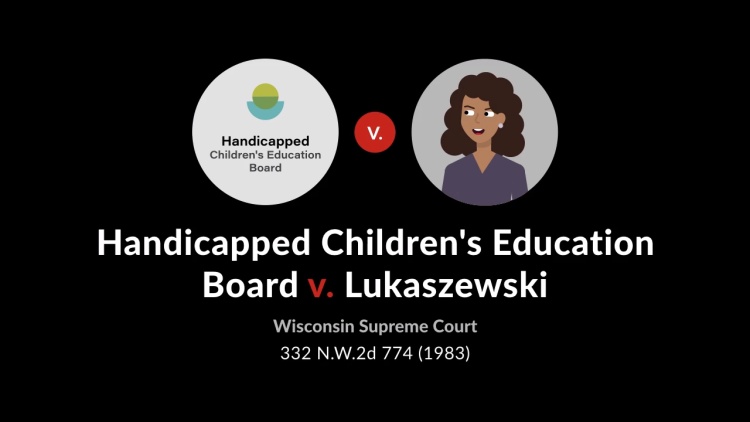Handicapped Children’s Education Board v. Lukaszewski
Wisconsin Supreme Court
332 N.W.2d 774 (1983)
- Written by Sarah Larkin, JD
Facts
Lukaszewski (defendant) entered into a contract with Handicapped Children’s Education Board (the board) (plaintiff) to work as a therapist for the 1978–1979 school year. Before the school year began, Lukaszewski was offered a position by a daycare center near her home. The daycare center offered a higher salary than the board. Lukaszewski attempted to resign her position with the board, but the board refused to release her from her contract. Lukaszewski began working under the contract but became upset with her situation. She visited her doctor, who told her that she was suffering from high blood pressure due to her situation. In September of 1978, Lukaszewski submitted a letter of resignation to the school, citing her health as her reason for resigning. Lukaszewski subsequently took a position with the daycare center. The board sought a replacement for Lukaszewski. Only one person applied, and she was hired. Because she was more qualified than Lukaszewski, the board was required to pay a salary that was over $1,000 more annually than what it would have paid Lukaszewski. The board filed suit for breach of contract. The trial court found in favor of the board and awarded the board the additional annual cost of the replacement therapist. Lukaszewski appealed and argued that the board received a more qualified therapist for the extra cost and therefore she was not responsible for the additional expense because there was no net loss in hiring the replacement. The court of appeals held that Lukaszewski had breached her contract but that the board was not entitled to damages because, though it had to pay a higher salary, it was receiving a more valuable therapist. The board appealed to the Wisconsin Supreme Court.
Rule of Law
Issue
Holding and Reasoning (Callow, J.)
Dissent (Day, J.)
What to do next…
Here's why 905,000 law students have relied on our case briefs:
- Written by law professors and practitioners, not other law students. 47,100 briefs, keyed to 995 casebooks. Top-notch customer support.
- The right amount of information, includes the facts, issues, rule of law, holding and reasoning, and any concurrences and dissents.
- Access in your classes, works on your mobile and tablet. Massive library of related video lessons and high quality multiple-choice questions.
- Easy to use, uniform format for every case brief. Written in plain English, not in legalese. Our briefs summarize and simplify; they don’t just repeat the court’s language.





